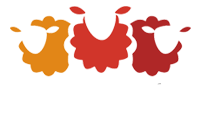In recent years, a growing movement has emerged to celebrate the achievements, resilience, and contributions of people with disabilities while striving to address the ongoing challenges they face in society.
According to the World Health Organization (WHO), approximately 15% of the global population lives with some form of disability and among them, there is upto 80% of unemployment rate in developing countries. This translates to over one billion people worldwide facing barriers to full participation in society. It is important to note that disability statistics can vary across countries and regions due to different definitions and methodologies. Nevertheless, these numbers serve well to emphasize the need to address disability-related issues globally.
Intersectionality and Disability
An important aspect of Disability Pride Month is recognizing the intersectionality of disability with other identities. Two people with similar disabilities may have completely different life experiences and challenges based on their privileges (or lack thereof) and intersecting marginalised identities such as race, gender, sexual orientation, socioeconomic status, caste, class, education, accessibility and more. These intersecting marginalized identities combined with lesser privileges of education, financial strength, and family support impact self-image, self-worth and the way they engage with the society.
Areas Needing Attention
Despite progress in disability rights, there are still significant areas that require attention to level the playing field for people with disabilities. Accessible infrastructure, inclusive education, healthcare services, employment opportunities, and transportation remain key areas where improvements are needed to level the playing field for PwDs. Promoting digital accessibility and ensuring inclusive technology design are also pressing concerns in today’s digital era. Additionally, social attitudes, perceptions and stigmas surrounding disability need to be addressed to foster a more inclusive and accepting society.
Allyship for Inclusion, Accessibility, and Equitable Opportunities
Allyship plays a crucial role in advancing the rights and inclusion of people with disabilities. Allies are individuals who actively support and advocate for the rights and dignity of others. In organizations and society at large, allyship involves promoting equal opportunities and representation, challenging ableism, and fostering environment that recognizes and accommodates the needs of people with disabilities. While an ally is not a label one can claim to be; it’s a responsibility that can be demonstrated through the following behaviours.
Education and Awareness: Invest time in learning about disabilities, disability rights, challenges, and histories to better understand the experiences of people with disabilities. This knowledge helps to dispel myths and challenge stereotypes.
Active Listening and Empathy: Listen attentively to the experiences and perspectives of people with disabilities, practice empathy and understanding. By amplifying their voices and concerns, allies can help bridge the empathy gap, the trust deficit and promote positive change.
Inclusive Language: Use person-first language e.g. person with disability rather than disabled person. Avoid stigmatizing terms when referring to individuals with disabilities such as handicapped, people with special needs, differently abled or specially abled. Instead of derogatory terms such as mental, retarded, use the term people using mental health services.
Advocacy and Support: Allies can use their privilege and influence to advocate for policy changes, accessibility improvements, and inclusive practices within organizations. By actively supporting initiatives that promote equal opportunities, allies can help dismantle barriers to employment and growth.
Inclusive Hiring and Accommodation: Allies in organisations can champion inclusive hiring practices, ensuring that individuals with disabilities are given equal consideration for employment, learning and growth opportunities. Providing reasonable accommodations in the workplace, such as accessible facilities or assistive technologies, is crucial to supporting employees with disabilities.
Let us all collectively work towards creating a more equitable society for people with disabilities all year round. Let us embrace diversity, challenge stereotypes, and strive for a world where all individuals are recognized, respected, and empowered.
The author, Kunal S., is the General Manager- OD consulting and facilitation, Marching Sheep

